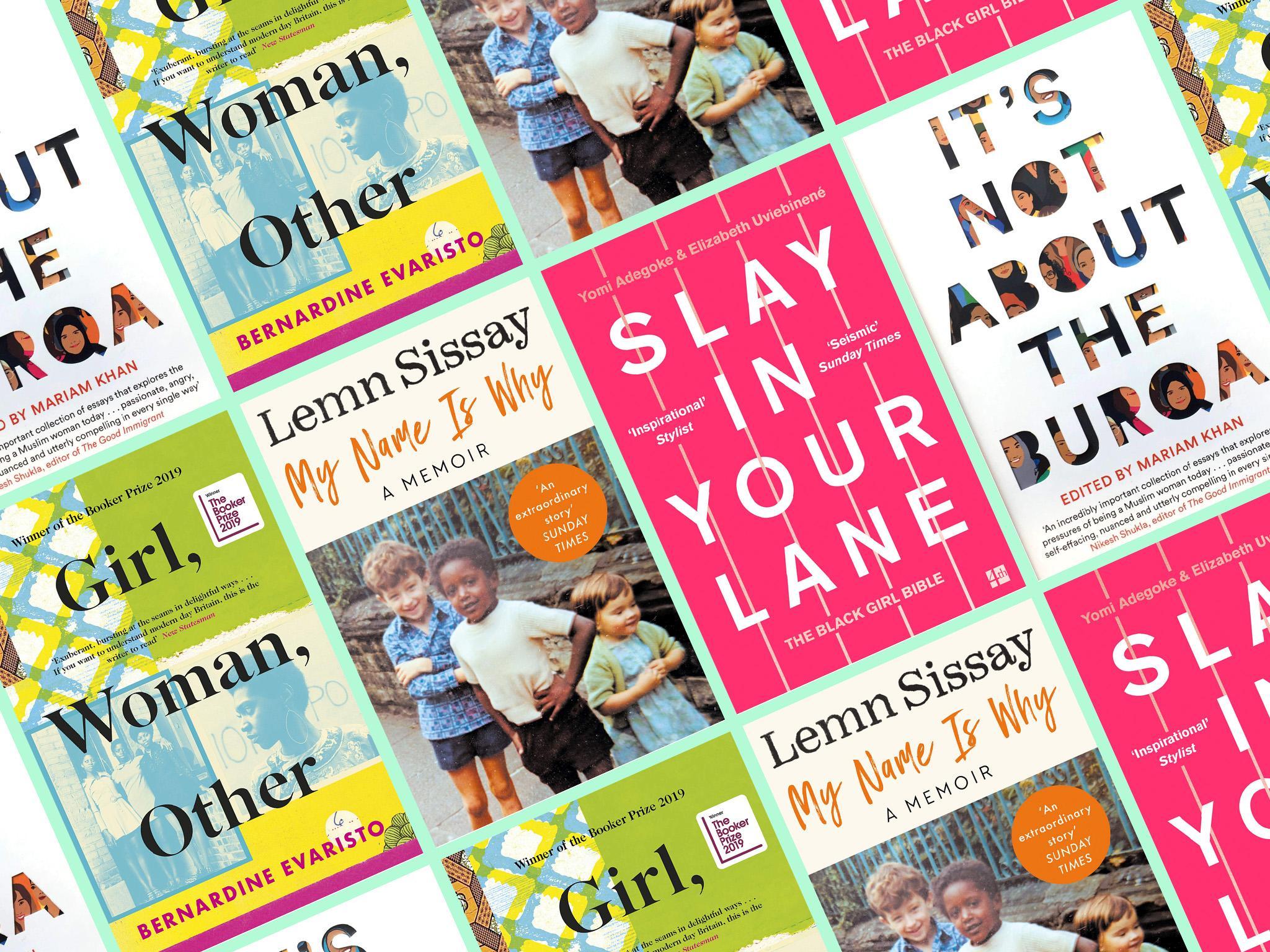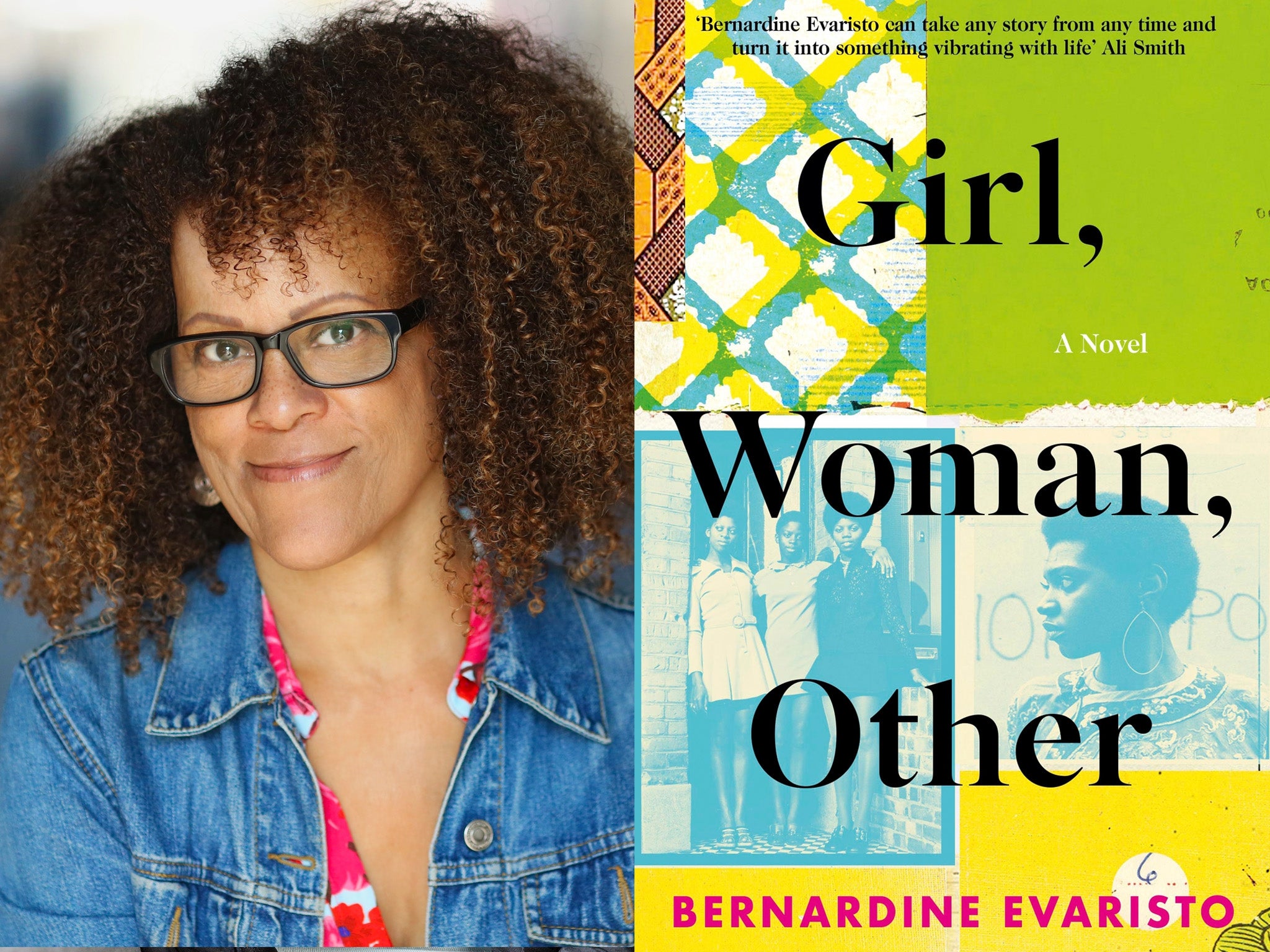From The Good Immigrant to Think Like A White Man: The best books on race in Britain
Racism is defined by those who experience it, writes Diyora Shadijanova. Here’s what to read if you want to understand how racism manifests itself in Britain today


Since Prince Harry and Meghan Markle cut ties with the royal family, painful and predictable conversations on whether racism exists in Britain have resurfaced.
Newspapers, primetime television shows and politicians have been acting as though the concept is brand new. But people of colour have been talking about their lived experiences for years.
Among the endless cycle of hate-bait is thoughtful, nuanced writing about how racism manifests itself in British society.
Here are some books that do just that.
Slay In Your Lane: The Black Girl Bible – Elizabeth Uviebinene and Yomi Adegoke
After realising that no such resource existed, Yomi Adegoke and Elizabeth Uviebinene wrote a guidebook for black women, who face the unique challenges of misogynoir on a daily basis. Touching on the workplace, education, the media, dating, finance and health, The Black Girl Bible is packed with words of encouragement, practical advice on how to navigate different spaces, and interviews from some of the most successful black women in Britain.
The Good Immigrant – Nikesh Shukla
Shukla’s book brings together 21 writers to explain what it’s like being an immigrant in the UK today. Essays tackle racist stereotypes, cultural appropriation, lack of representation, what it’s like being told to go “home” when you were born in Britain and the idea that immigrants have to be good in order to be “tolerated”. There are powerful contributions from Musa Okwonga, Reni Eddo-Lodge, Riz Ahmed, Vera Chok, Nish Kumar and Coco Khan.
Why I’m No Longer Talking To White People About Race – Reni Eddo-Lodge
Racism goes beyond being “outwardly” racist. Eddo-Lodge’s book delivers a clear message – that racism is defined by those who experience it and it’s not their job to explain it to those who choose to stay ignorant. Through clear, succinct and well-researched prose, Eddo-Lodge explains topics such as privilege, white feminism, class and the importance of diversity.
Orientalism – Edward Said
Though not the easiest book to read, this is one of the seminal texts on the geopolitics of race, and the way it’s been used by the Western world to homogenise anyone it sees as “different”. Orientalism explores the patronising and fetishising attitudes towards the Middle East, Asia and north Africa, carefully explaining how this has manifested in our culture. If you’ve ever used “oriental” as an adjective, you should probably read this.
My Name Is Why – Lemn Sissay
Lemn Sissay discovers his real name is not Norman Greenwood at the age of 17. After years of being in care, he is finally able to learn his own family history. His mother, from whom he was ripped at birth, has been trying to reunite with him all this time, and the poet takes us on an emotional journey through the British care system and the idea of “home”.
Natives – Akala
The rapper, poet and activist examines how race and class shaped his entire life. Walking us through his childhood experiences, from racist teachers to being stopped and searched by the police, Akala eloquently explains how Britain is in denial about its own history and the legacy of its empire. This phenomenal book guides us through police brutality, the education system and the rise of the far-right in a country that refuses to accept its own reality.
Girl, Woman, Other – Bernadine Evaristo

Bernadine Evaristo is the first black British woman to be awarded the Man Booker Prize for Girl, Woman, Other. The novel follows 12 characters, most of whom are black British women, all finding their way in the world. The complex characters are all linked to one another, but because of the time and space in which they exist, their experiences couldn’t be more different.
Think Like A White Man – Dr Boule Whytelaw III and Nels Abbey
This hilarious rulebook sheds light on the black experience in the UK. If you follow the “White Man Commandments”, it says, you will be able to achieve anything beyond your actual abilities. This original approach to discussing race is funny, intellectual and timely.
Brit(ish) – Afua Hirsch
What does it mean to be British? Is it if both your parents are British? Is it if you have a British passport? Is it if you were born in Britain? Afua Hirsch addresses all these important questions at a time when British people are constantly being asked where they’re “from”.
Taking Up Space: The Black Girl’s Manifesto for Change – Chelsea Kwakye and Ore Ogunbiyi
Published by Merky Books last year, Taking Up Space tackles the lack of diversity in the education system and how this affects the experiences of black women at UK universities today. The two recent Cambridge grads share their stories of uni and intertwine interviews from other black women across British universities. They address whitewashed curriculums, discrimination in spaces of learning and the impact of activism on mental health.
It’s Not About The Burqa – Mariam Khan
For years, Muslim women have been spoken for by politicians, academics and, well, pretty much everyone. But Mariam Khan’s book of essays gives the power back to the Muslim women who want to speak for themselves. Essays explore race, gender, faith, sexuality, fashion, divorce, masculinity, the media and the perception of Muslim women in modern Britain.
Safe: On Black British Men Reclaiming Space – Derek Owusu
An outstanding book of essays from poets, journalists, actors, musicians and writers put together by Derek Owusu. Different voices share perspectives on what it means to be a black man in Britain today, with writers discussing their own experiences within the wider narratives of pop-culture, masculinity, race and class.
“I Will Not Be Erased”: Our stories about growing up as people of colour – gal-dem
The award-winning print and online magazine compiled the experiences of women and non-binary people of colour. Its 14 essays explore what it’s like growing up as a person of colour when you’re constantly being invalidated by the people around you. I Will Not Be Erased is a declaration of acceptance and self-love and has been described as “essential reading for any young person”.
“Don’t Touch My Hair” – Emma Dabiri
Emma Dabiri’s book is about the politics and rich history of black people’s hair – how it has been othered, appropriated and capitalised on. She contextualises the topic through the wider scope of colourism, colonialism and western beauty standards. A must-read.
Join our commenting forum
Join thought-provoking conversations, follow other Independent readers and see their replies
Comments